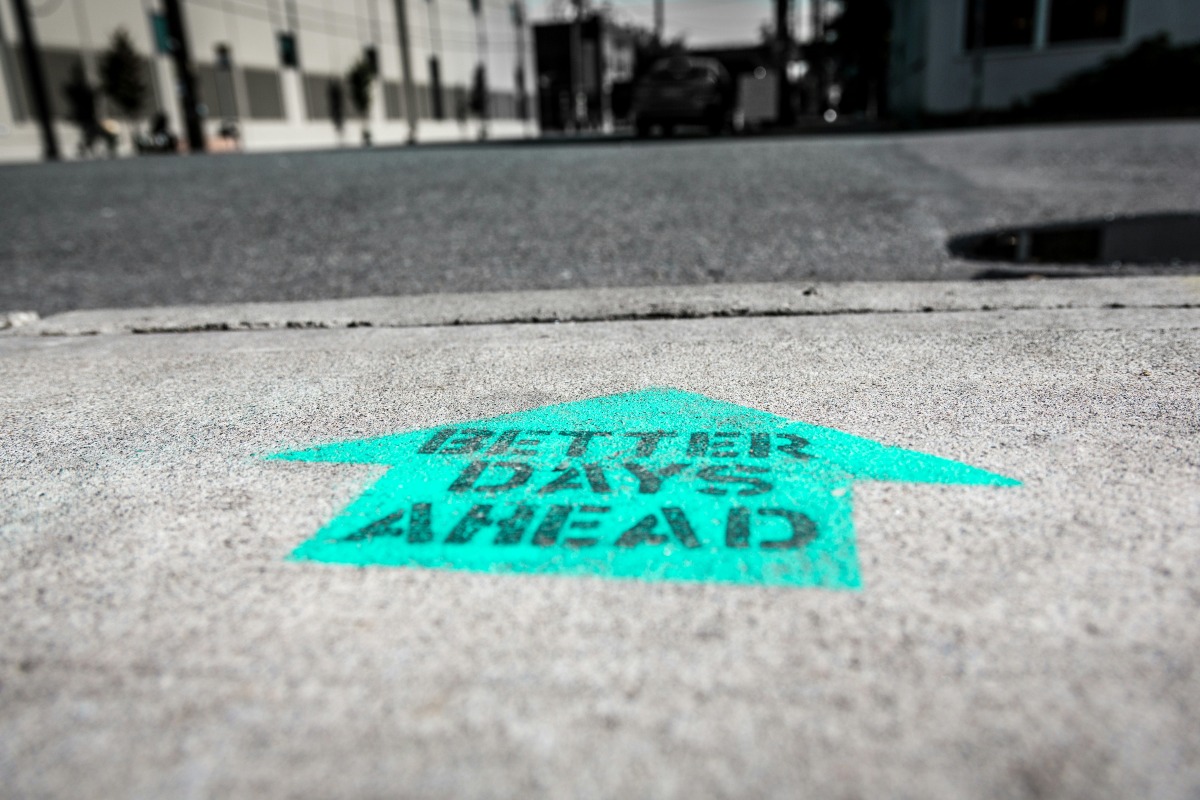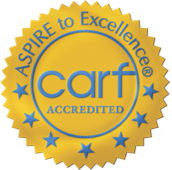Mental health disorders and addiction are complex challenges to overcome, and there is never a single path to a healthier life. Rather, each person will have their own best combination of strategies and techniques to address their unique challenges and experiences in pursuit of their goals in recovery. Working with professionals like those at Hawaii Island Recovery is necessary to explore various healing options and create a personalized treatment plan that is right for each person, ensuring that each person can make the most of their time in treatment. Transcranial magnetic stimulation, or TMS, is one of these available options, able to support addiction treatment and healing from underlying mental health disorders in each person’s recovery program.
What Is Transcranial Magnetic Stimulation (TMS)?
TMS is a noninvasive procedure designed to support mental stability and stimulate neural activity. It is a completely safe procedure administered by a professional, so each person can explore this option in their journey of healing.
During TMS sessions, magnetic pulses are sent to targeted, specific areas of the brain to increase neural activity and facilitate a wealth of positive benefits. While TMS is commonly used as a supplementary option for those living with mental health disorders like major depressive disorder (MDD), it has also seen success in treating addiction or addressing co-occurring mental health disorders and substance use disorder (SUD) in tandem, making it a versatile and effective option for learning effective emotional regulation.
These magnetic pulses are also completely safe, though it is not uncommon to feel something akin to tapping along the scalp when engaging in TMS. However, a professional at Hawaii Island Recovery is always available both before you explore this option to discuss its intended effects and expectations, as well as during a session to address any further questions or discomforts that each person may experience.
What Is the Goal of TMS?
TMS has had success in treating mental health disorders and challenges common in those overcoming addiction. However, it is not a “fix” to these challenges. Rather, effective use of TMS has specific goals that can aid in each person’s healing journey. Some of the goals of TMS include:
- Increasing neural activity, particularly in areas of the brain associated with mood regulation to challenge feelings of depression
- Aiding in the production and distribution of serotonin or dopamine to improve mood
- Reducing feelings of anxiety through effective emotional regulation
TMS can also help improve overall brain function, which is crucial for learning important decision-making skills, focusing, and managing otherwise self-destructive impulses that may be prevalent in daily life throughout each person’s recovery journey.
However, TMS can also be incredibly beneficial for those overcoming addiction. Addiction takes many forms, from alcohol use disorder (AUD) to cocaine addiction, prescription opioid addiction or opioid use disorder (OUD), and much more. However, all have intimate and intense effects on the brain, and TMS can help to address some of the effects that addiction has on neurological function while pursuing a life of sobriety. Using TMS as a part of a person’s addiction treatment program can help to alleviate ever-prevalent urges and cravings or aid in the healing of damaged neural pathways, helping to restore cognitive brain function following addiction.
Improving emotional regulation and impulse control are crucial skills for effectively preventing relapse throughout each person’s recovery journey, empowering those in recovery to act more deliberately and stay aligned with their sober goals rather than feeling compelled to act on impulses. Lastly, TMS can also address both these effects of addiction and the effects of mental health disorders and trauma, making it a unique and comprehensive option for those overcoming multiple challenges or co-occurring disorders in their healing journey.
Exploring TMS in Your Personalized Treatment Program
Each treatment program is a collection of personalized strategies and techniques, and no two treatment programs will be the same. However, it is still normal to have reservations about various forms of treatment, including TMS. Understanding what to expect when considering TMS is a great way to decide if it is a strategy that is right for each person and helps to deconstruct barriers when committing to this potential healing option.
What to Expect When Engaging in TMS
During a session, a person is provided with a comfortable chair and space to help those engaging in TMS approach their healing in a calm and supportive environment. A person may also be asked to remove magnetic items, from jewelry to cell phones or other personal items. Then, a professional will place a magnetic coil on their head, around the scalp. This coil administers the targeted magnetic fields to specific parts of the brain to stimulate neural activity and improve emotional regulation.
Those using TMS can still talk to a professional during these sessions, listen to music, or engage in other relaxing activities. It is common to feel a “tapping” along the scalp during these sessions, and while these can be uncomfortable at first, they are not painful and will simply require some time to get used to. These sessions can last varying lengths of time but typically fall between 20 to 40 minutes each.
How Long Do These Treatments Last?
While each TMS session lasts for around 20 to 40 minutes, those engaging in TMS will often commit to multiple sessions to get the most out of the approach. TMS sessions are conducted daily, with full programs lasting four to six weeks. However, each person will also have regular check-ins with professionals to monitor progress and make adjustments as necessary for the most effective approach to overcoming addiction, mental health disorders, or a combination of the two.
Who Benefits From TMS?
TMS can be effective for anyone, and anybody who is curious about this potential treatment method or is curious and open to learning more can always talk to a professional in further detail about these opportunities, either with Hawaii Island Recovery or at their local treatment facility. However, TMS can be especially beneficial for those navigating co-occurring disorders to address underlying mental health needs or who have experienced resistance to medication in treating these mental health needs, such as treatment-resistant depression.
TMS can also support those overcoming anxiety disorders or navigating multiple addictions, such as alcohol addiction and behavioral addictions like gambling, shopping, or other challenges. It is a comprehensive approach to healing the brain from the effects of these disorders and diseases, aiding in holistic, comprehensive care. However, there are some people for whom TMS may not be appropriate, particularly those who experience seizures or have had a metal plate surgically implanted for medical reasons.
Part of a Daily Routine
TMS sessions are daily, but that doesn’t mean they are an invasive part of a daily routine. Because TMS is entirely non-invasive and comes with limited side effects, those using TMS are free to develop their daily lives without feeling encumbered. A person can continue to drive, work, attend other treatment programs, or engage with family and friends normally either before or after TMS sessions.
Setting Expectations for TMS in Recovery
No part of overcoming addiction, mental health disorders, trauma, PTSD, or other challenges is easy. Like any other form of treatment, TMS is not a “quick fix” to these challenges, and there is no strategy, technique, or medication that can eliminate the need for hard work, dedication, and sustained treatment and motivation. Likewise, TMS is not a replacement for other effective forms of therapy. Those choosing to explore this option should do so in addition to other forms of treatment, from individual and group therapy to ongoing outpatient care, experiential therapies, and evidence-based treatment modalities like cognitive-behavioral therapy (CBT), dialectical behavior therapy (DBT), motivational interviewing (MI), and more.
TMS is best used as an adjunctive therapy for those overcoming addiction and mental health disorders or trauma. However, it can provide an additional layer of support that can make a massive difference in maintaining sober change and managing each person’s mental health at any stage throughout their sober journey.
Additionally, while TMS can be an effective approach to supporting healing and sober change, it will not necessarily work for everyone. It can also take time and multiple sessions for a person to see success and change in their healing journey, meaning that a person may not recognize the positive benefits of TMS after just one or two sessions. Committing to a TMS program means being open to exploring this option over time for the most effective use of the program. However, each person can always talk to a professional about their progress or make adjustments to find the most effective approach to healing, depending on each person’s unique experiences and responses to TMS.
Maintaining Positive Mental Health and Sobriety
While TMS has been effective for treating underlying mental health disorders and co-occurring disorders for those overcoming addiction, completing a TMS program does not mean that a person’s journey maintaining these changes is done or that a person is “cured” of depression, anxiety, or addiction. Commonly, many of those navigating their recovery journey will be tasked with making lifelong changes and continuing to update their treatment plan and daily life for years. Likewise, some people who have benefitted from TMS may need to reengage with the strategy to maintain these effects or use them in conjunction with other therapies to address new stresses, challenges, or changes throughout sustained sobriety.
TMS is also best used as a resource while learning other essential skills for navigating each person’s healing journey, from exploring new experiences and perspectives to practicing new self-care outlets and attending sober social gatherings, outpatient meetings, and community efforts.
Creating a Comprehensive Approach to Treatment at Hawaii Island Recovery
Combining TMS with other effective therapies and strategies is crucial to navigating the complexities of healing from addiction, mental health disorders, or co-occurring disorders. Hawaii Island Recovery blends proven therapies and experiences with an array of supplemental options like TMS to empower each person to explore their own best practices and goals.
Each program is also designed to treat more than a collection of symptoms or challenges but rather engage in a holistic, interconnected form of healing for sustainable change. Mental, emotional, physical, spiritual, and social healing opportunities are all part of an effective and sustainable healing program at Hawaii Island Recovery, with TMS being one option for a person’s journey.
Creating a daily routine that includes TMS alongside experiential therapies, nature-based therapies like walks along the ocean or nature hikes, and social healing opportunities in a sober-curated community can create a truly transformational approach to a healthy, sober life. Addiction is a comprehensive disease and does not affect a person in isolation. Rather, it affects every part of daily life and often impacts both individuals and their families, loved ones, friends, and peers. Using TMS as an element of an equally comprehensive treatment program can empower each person to explore these areas of healing in their lives, with the unique programs and opportunities of Hawaii Island Recovery all working in tandem to create personalized care and a unique recovery experience.
TMS and Effective Relapse Prevention
Those using TMS as a part of their treatment program can benefit from the use of these target magnetic fields to not just address mental health disorders but also help to regulate emotions and decrease urges and cravings. While TMS will not eliminate these urges and cravings, experiencing them in a more manageable intensity can empower each person to better maintain their sober change or enact other relapse prevention strategies. Decreasing their frequency or intensity and promoting improved emotional regulation can make TMS an effective part of other relapse prevention strategies.
Healing in the Hawaiian Islands
While TMS is available through many treatment facilities and contacting a local treatment facility about the program can be a great option for those overcoming addiction and mental health disorders, Hawaii Island Recovery offers a unique opportunity for exploring treatment using TMS within our walls. Hawaii Island Recovery uses the serene benefits of the Hawaiian Islands to create a sense of peace and calm, helping to alleviate stress and distance oneself from daily stresses and challenges, or even self-destructive routines. This creates an environment curated for mental, physical, and emotional healing, and can easily incorporate the calming and effective practice of TMS for a transformational healing experience.
Engaging in nature-based therapies, community outreach activities, and more is all part of each person’s healing journey, all while providing a wealth of personalized healing options, from TMS to medication, experiential therapies, and much more. The on-site chef also attends to physical needs through proper nutrition while promoting a feeling of community and togetherness for those overcoming addiction and mental health disorders.
Know What Works for You
While TMS can be effective, it is not the most widespread and visible treatment option for many. Likewise, it is possible that an individual may not have the same experiences with TMS as their peers. Being able to personalize these programs and pivot to new options is a crucial part of exploring each person’s own best approach to overcoming addiction. Talking about TMS, setting appropriate expectations for the practice, and meeting with professionals to discuss changes, challenges, and the effectiveness of these programs are part of personalizing each person’s unique healing journey.
Keeping journals and continuing to engage in individual therapy sessions can help each person determine the effectiveness of TMS in their healing journey, as well as explore other adjunctive therapies and ideas for a holistic approach to change. However, being open to the benefits of TMS and setting realistic expectations can make this approach to treating addiction, mental health disorders, trauma, PTSD, and a combination of these challenges effective. TMS can be effective for reaching new levels of emotional regulation, focus, and control, and empowers those in recovery to more effectively engage in other therapies for truly transformational change.
At Hawaii Island Recovery, we understand the importance of personalizing each treatment program to reflect your needs, goals, and experiences in overcoming addiction and mental health disorders. TMS is just one effective option for you to create your best approach to healing. Throughout each of our programs, from detox to residential care, we offer opportunities for you to become the agent of your own change, providing support and resources to you to find your most effective strategies while you put in the hard work that it takes for truly transformative healing. For more information on our unique and holistic approach to addiction recovery, mental and emotional support, and spiritual healing opportunities, call us today at (866) 390-5070.












